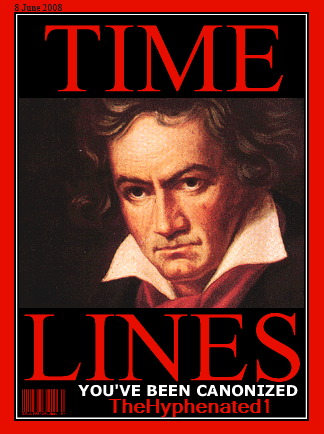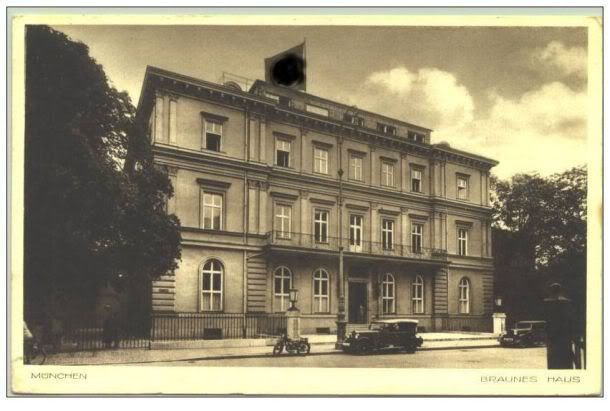Chapter II: Part XXII
Chapter II: The Gambit of the West
Part XXII
April 22, 1936
“Thank you for the ride, Hauptmann Bauer.”
“Good luck.”
Cristoph Scholl climbed from the sidecar of the captain’s motorcycle. Along with several members of the Führer’s staff, he had come by car from his hotel on the Brienner Strasse. They had found the road to Karlsfeld choked with trucks and SS personnel. Apparently, one of the officers had told them, the Führer’s headquarters was being evacuated. It was six twenty-five in the morning, and Scholl was expected to be at Hitler’s side in just minutes. Overhearing of his plight, the passing Hauptmann Bauer had offered him a ride along the shoulder of the road.
Now, men were swarming about the trucks, loading furniture and equipment that was being passed out of the Engmann St. Louis warehouse basement. Scholl blinked off his sleepiness. He had to find the Führer.
A wail overhead drew all eyes skyward. Several seconds later, a dull thud shook the ground. Loading of the trucks resumed immediately. The city had been sporadically shelled by French long range artillery, and looking southeast toward the city center, Scholl saw several plumes of gray smoke drifting into the overcast sky.
Scholl hurried down the concrete ramp to the basement entrance, squeezing himself past two Luftwaffe staffers walking a heavy desk up towards a waiting truck bed.
As his eyes adjusted to the dim light within, he found the huge room nearly empty. Near the center, the Führer’s immediate staff still worked diligently as the headquarters was being dismantled around them. Scholl presented himself to Standartenführer Junge. “Where is the Führer?”
“Outside, talking to Obergruppenführer Dietrich. The Führer must decide where to go.”
“He is giving up Munich, then?”
“I believe so.”
Scholl swallowed. In the short time that he had come to know Germany’s Führer, he had come to appreciate his almost fanatical love for the German soil. Each square meter lost -- especially ground so dear to him as Munich’s -- wounded him deeply.
The day before, Hitler had had a second outburst when he learned that Augsburg had fallen despite stout resistance in the forests to the west of the city. Fortunately that time, someone had been able to reach Bayerlein, who telephoned the Führer, promising to appear the next day at his headquarters to personally restore the situation.
It would need a great deal of restoration.
HGr.KdoAB, under General Liebmann, was desperately trying to slow the French drive toward Munich.
Though it commanded eighteen divisions of varying combat readiness, most of these were in disarray several days away from the city. Only two divisions of any effectiveness stood in the path of the French advance.
The French advance was led by the 4ème Armée -- comprised of five infantry divisions and one of cavalry.
On April twentieth at Pforzheim, the cavalry had been badly bloodied when it attempted to assault a German infantry battalion without assistance. Even though the battalion had been eventually forced back, more than a thousand horses and men lay dead on the field.
Liebmann had fared more poorly, however, against the French infantry -- which was supported by horse-drawn artillery. The speed of the French advance had left little time for Liebmann’s men to prepare defensive positions, leaving them unable to slow the enemy for more than a few hours at a time.
After the fall of Augsburg, Liebmann had retreated eastward, ordering his men to entrench some 15 kilometers from Karlsfeld in the hope of at last arresting the progress of Blanc’s 4ème Armée. This had brought Munich and its outskirts well into the range of French artillery, which had inflicted enough damage to cause the Führer to apparently consider leaving.
Returning to the outside of the warehouse, Scholl found Hitler standing next to his personal limousine, engaged in conversation with Leibstandarte-SS commander Josef "Sepp" Dietrich. Dietrich was a compact, rough-looking man who commanded the fearful respect of all those under him. He had been a butcher in the old days, Scholl had heard, and dark whispers following the Night of the Long Knives held that he remained one.
“Heil!” Scholl approached when neither man was speaking.
“Cristoph, I am glad to see that you got through.” The Führer squeezed his shoulder. “I have just decided that I shall go to Berchtesgaden. I would have liked to stay in Munich, but if Munich is surrounded, I would no longer be able to lead Germany. Nonetheless, we will remain in the south, and thereby rally the German People to resistance.”
“Yes, Mein Führer.”
“You may travel in my car, as I may have need of you.”
Scholl soon found himself in the back of the Mercedes-Benz 770, along with Dietrich and their Führer. From the car, they could hear a large artillery barrage pound the German positions west of Munich -- and die down several minutes later.
Standartenführer Junge was at the window. “Mein Führer, the convoy is ready to depart. The observers report that it is safe to go now, as the barrage has ended.”
“Thank you. I shall see you in Berchtesgaden.”
Junge saluted, and the limousine began to roll toward its place in the convoy.
Scholl settled into the comfortable black leather seat. The Führer had been the happiest he had ever seen him the day he received news of Hausser’s drive to Paris. He had anguished over the prospect of Hausser leaving it the very next day, but had declared himself willing to trust Hausser’s own judgment. So much had happened in so little time.
Reaching into his trouser pocket, Scholl felt the folded telegram still there from days before. He pulled it out and reread it, imagining Hitler’s first surprised reading of it on the seventeenth.
Secret
1230 April 17, 1936
Mein Führer,
The commanders met today at Headquarters, Heeresgruppe A (North) to decide upon a course of action for II Armeekorps. At least 11 divisions, some of them armored, are threatening to cut off GLT Hausser’s 3 divisions in Paris. The French tanks are far heavier than our own, and can only be defeated by artillery, armor and infantry working together. It is impossible for VI Armeekorps to reach Paris before II Armeekorps risks annihilation. Because the loss of nearly the entire Panzerwaffe would devastate the war effort, this must be averted at all costs. Upon asking the opinion of GLT Hausser, he suggested that II Armeekorps move to join VI Armeekorps so that the combined force can decisively destroy the enemy army and advance with overwhelming force. The commanders were initially hesitant, but Hausser’s clear strategic analysis and excellent understanding of his own situation convinced us the support this proposed maneuver. Please cable back with your approval immediately, so as to allow GLT Hausser time to execute his operation before nightfall.
v. Fritsch
As the convoy made its way into the heart of Munich, it came to a stop along the Brienner Strasse. Hitler and Dietrich slipped out of the limousine and down the sidewalk, surrounded by soldiers from the trucks. Scholl shifted in his seat to see them out his window. They were at the so-called Brown House, the headquarters of the Nazi Party. Scholl had seen the brown brick edifice many times in photographs, and passed it on the street every day when he left his hotel, but had never been inside. Now, he saw the Führer at the entrance, speaking to a man in Party uniform whom he did not recognize. The doors of the Brown House were opened, and four SS men carried out a long wooden crate. Scholl could see Hitler give the men instructions -- he seemed to Scholl to be cautioning them to be careful with the crate -- as they loaded it onto the bed of the truck in front of the limousine.
The Brown House was the longtime headquarters of the Nazi Party.
With Dietrich, Hitler and the crate back in their respective vehicles, the convoy started up again, winding through the city toward the Autobahn towards Berchtesgaden. The historic buildings of Munich’s famed city center had faded into apartment buildings and tree-lined neighborhoods when the convoy again lurched to a stop.
Adolf Hitler’s convoy making its way out of Munich.
Scholl heard the roar of a motorcycle engine, and Hauptmann Bauer pulled up alongside the limousine. In the sidecar was Fritz Bayerlein.
Hitler’s Favorite climbed from the sidecar, thanking the captain just as Scholl had himself earlier, and appeared at the Führer’s window. “I am here as promised, Mein Führer.”
Visibly animated by the Acting Generalmajor’s presence, Hitler greeted Bayerlein warmly and invited him into the limousine. Taking his seat, Bayerlein spoke frankly and directly.
“I hear that you are leaving for the Berghof, and I am troubled by this, Führer. You have summoned me to turn around the situation in Bavaria, and I tell you that you must remain with the commanders of the Heer in the north.”
“I do not think I can do that, Bayerlein.”
“I must insist that you go north, away from the path of Blanc’s army.” His tone was calm, but only a handful of men in the Reich would dare speak to the Führer so.
“Such a thing would be seen as abandonment of the Bavarians. I must help them resist.” Hitler looked to Dietrich, who was sitting across from him, for encouragement, but Bayerlein pressed on.
“If you are trapped in the south, Mein Führer, the war will be lost. Come north with me to Army Group Headquarters at Regensburg, and from there we can prepare to retake Munich and Bavaria.”
“How could they countenance such a betrayal? How could I…”
“Mein Führer, I myself am a Bavarian. I love this land as much as you do, but I would sooner lose it for a month to retake it permanently, than to hold it for a month to lose it permanently.”
“My Bayerlein, what shall we do to retake it?”
“At my urging, General von Rundstedt has ordered Generalleutnant Hausser from the north to our defense.” At this, Scholl felt the convoy begin to move again.
“Hausser?” The Führer’s eyes brightened.
Sensing an opportunity to sway him, Bayerlein drew a paper map from his breast pocket and recounted the situation in the north for Hitler, Scholl and Dietrich.
He explained that Hausser’s regrouped II Armeekorps had moved eastward, taking Sedan that morning -- thereby trapping four French divisions in eastern Belgium.
von Blomberg’s forces -- VI Armeekorps and its constituent XI Armeekorps -- now controlled a relatively stable front running from the Channel at Fécamp to the borders of Luxembourg. The French pocket around Calais had been evacuated just before VI Armeekorps blocked its retreat, but the evacuated units would be in no position to fight for some time. This left the 7ème Armée blocking von Blomberg’s drive along the coast, the 9ème Armée opposite his center, and a number of reserve divisions congealing along his left.
As Bayerlein spoke, the Knight’s Cross hanging from his neck tinkled softly as the 770 alternately braked and accelerated with the rest of the convoy. Scholl felt himself drifting off to sleep. He fancied he heard Hitler say, “Regensburg it is.” Soon, he felt the convoy slow and turn to the north, then sleep finally took him.
 .
. ? Congratulations on the 26 years, by the way.
? Congratulations on the 26 years, by the way.  ). As to research, I take it you mean technological research? On that front, nothing new yet as only a few months have elapsed, but general research is focusing on modernization of the Heer.
). As to research, I take it you mean technological research? On that front, nothing new yet as only a few months have elapsed, but general research is focusing on modernization of the Heer.



